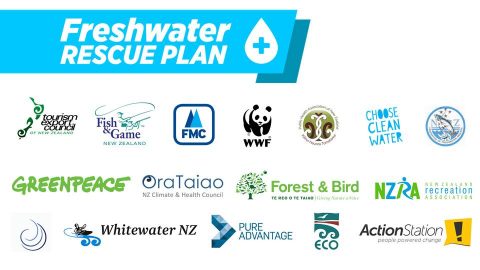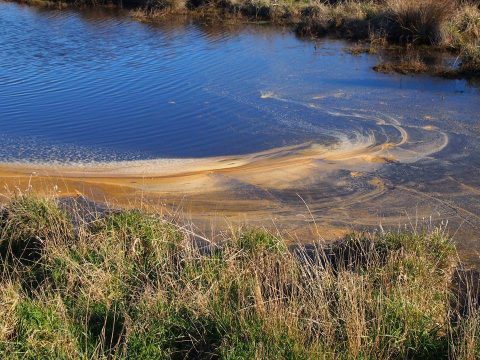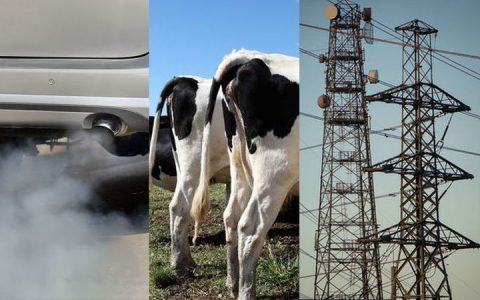A plea to vote for nature
The state of our environment, especially freshwater is of great concern to a wide cross section of people in New Zealand. The recently developed Freshwater Rescue Plan, supported by 16 organisations, from the public health sector to tourism and conservation, includes seven steps on how to save New Zealand’s waterways.

One of the aims is to achieve: “Strict and enforceable water quality standards that protect the health of people and waterways means a definition where levels of E. coli (measuring faecal contamination) nitrate, phosphorus, fine deposited sediment and Habitat Quality Index are set at levels that ensure ecosystem health.”
The plan is not anti-farming, it is aimed at making farming sustainable so future generations do not need to clean up the mess we are increasingly creating. Because of high inputs into farming such as imported feed and fertilisers, productivity has gone down markedly, and yet pollution has gone up, particularly the concentration of nitrate, phosphorus, faecal matter and sediment.

Sewerage from humans gets “cleaned” in treatment plants, yet each cow produces the equivalent effluent of 14 humans. Very little of it gets treated, only contaminants from the dairy shed, while most is deposited on the ground and then makes its way into aquifers, and into our precious waterways.
More recently the Minister for Primary Industies, Nathan Guy, has announced that some Landcorp farms are to be sold off. And yet, they are our largest and most progressive farmers. They are not only diversifying, they are pioneering and developing sophisticated land management systems which take people and the environment into consideration.
Adverse effects from climate change on our environment have similar consequences if we continue to place the ambulance at the bottom of the cliff. As a country we have done little to reduce our carbon emissions. The reality and associated costs of climate change need to be factored into legislation.

Photo: RNZ
We need to seriously implement “Green growth”. While a new concept for NZ, many other countries have successfully taken this path; for example Singapore is doing well with “Green technology”. In 2009, the ‘Harvard Business Review’ concluded : “Our research shows that sustainability is a mother lode of organisational and technological innovations that yield both bottom-line and top-line returns.” Becoming environmentally friendly lowers costs because companies end up reducing the inputs they use.
It is worth noting in relation to these issues that compared to all other OECD countries, we paid the second lowest income tax after Chile out of 36 developed countries. An average single worker in this country paid 17.9% income tax in 2016, compared to the OECD average of 36%.

Please. Vote for Nature on Saturday. Find out more at Forest & Bird’s Vote for Nature website.
Ines Stäger is a landscape architect based in Geraldine, a board member of the Royal Forest & Bird Protection Society and a committee member of the local branch.
